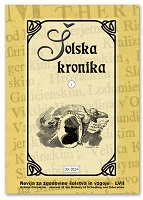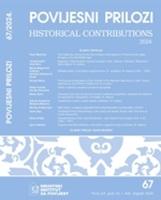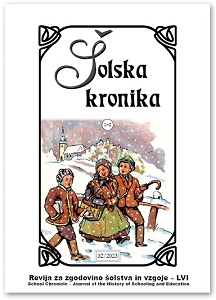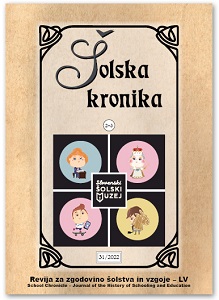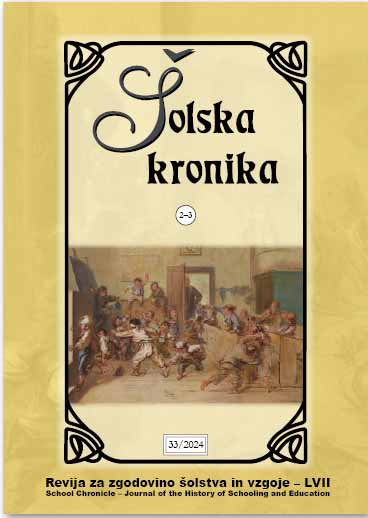
Stara šola v Vodicah 1855-1869
The article discusses the single-grade school in Vodice from the beginning of its continuous operation in 1855 until the introduction of the liberal school legislation in 1869, which fundamentally changed the school system. The period of the old school in Vodice is marked by the consequences of the Spring of Nations and Revolution of 1848, and the Concordat between the Austrian Empire and the Holy See of 1855. While the measures of 1848 contributed to the improvement of teaching in the primary schools, the Concordat mainly strengthened the role of the Catholic Church in the management, organisation, and supervision of teaching in primary education. Throughout this period, Jernej Stamcar, who was the second public teacher in Vodice, held the position of teacher, which also included the position of organist and sexton. The article is mainly based on the minutes of the district school staff meetings and the parish notice books, which are the main available sources for the history of the school in this period.
More...
